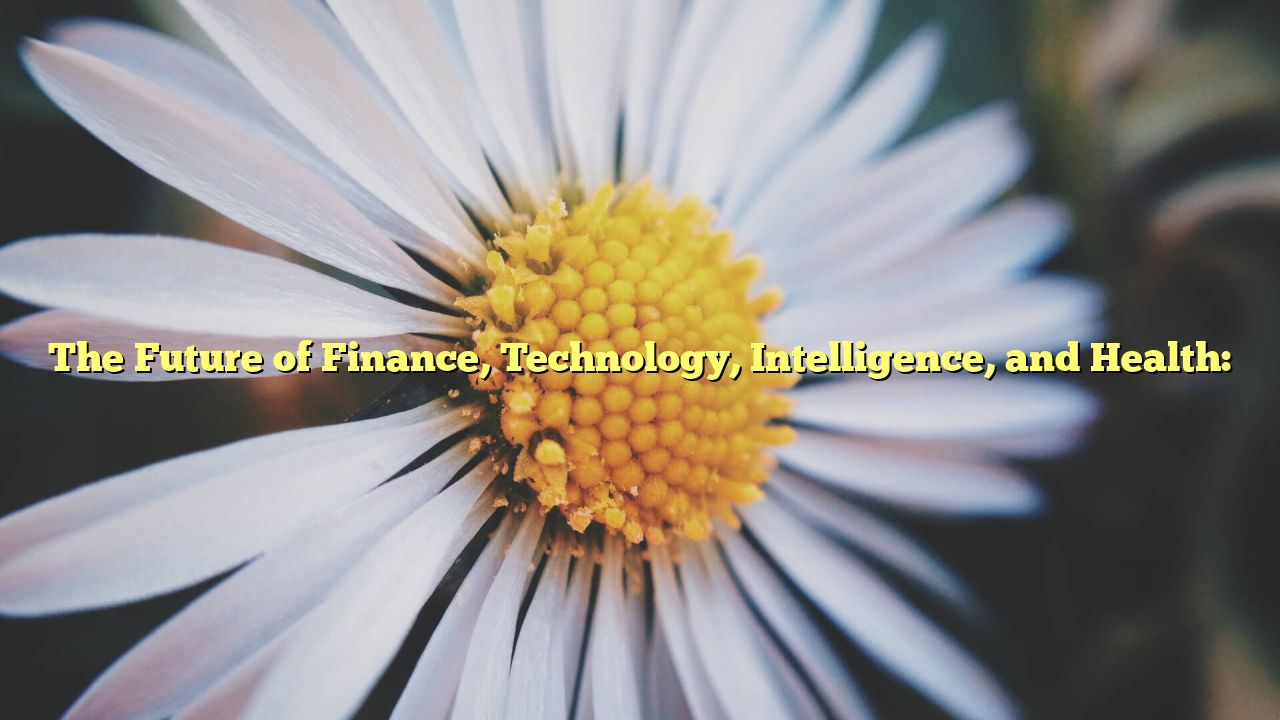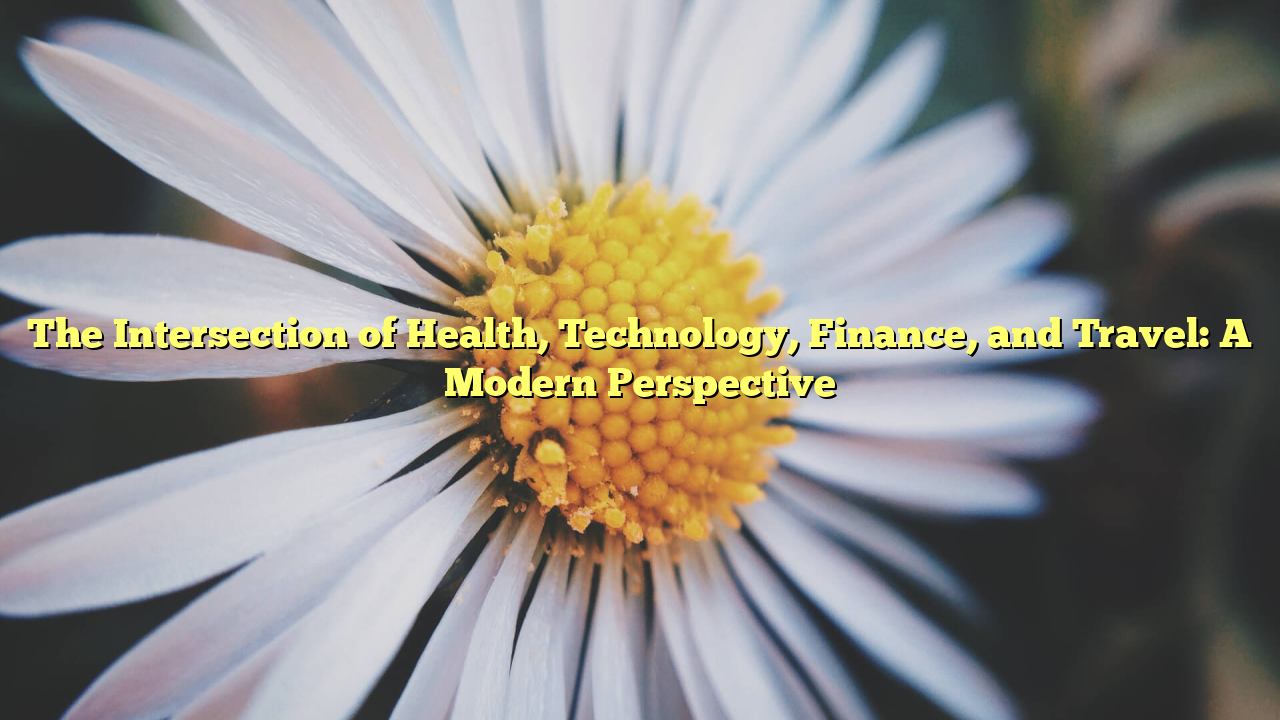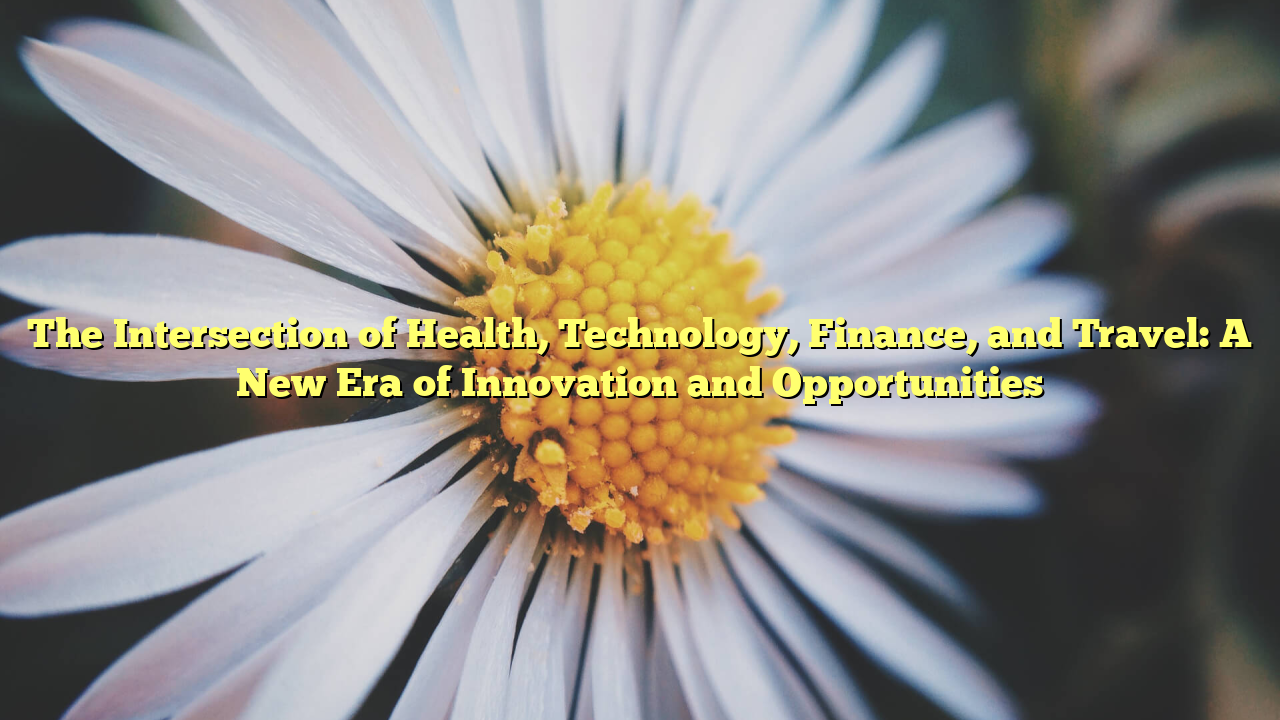Introduction: In the modern world, monetary systems, innovations , AI, and health have become crucial pillars in shaping the way we live, work, and interact. These four fields are deeply interconnected, with developments in one area often driving progress in the others. This article explores how finance, technology, intelligence, and health are evolving and what the future holds for these key areas.
Finance: The Evolution of Money and Investment
In recent years, finance has experienced a dramatic transformation, fueled by digital currency innovations, investment strategies, and economic shifts. One of the most significant changes in finance is the rise of blockchain technology . Cryptocurrencies like Bitcoin and Ethereum have made headlines for their volatile nature but also their potential to revolutionize the way we view money and financial transactions.
The decentralized nature of blockchain could help reduce fraud, increase transparency, and streamline transactions. In the realm of investment, machine learning are allowing investors to make smarter decisions with better predictions, minimizing risk and maximizing profits.
Moreover, FinTech companies are reshaping how individuals manage their wealth. These platforms are making financial advice and management more accessible than ever before, particularly for younger generations.
Technology: The Engine of Innovation
Technology has made rapid advancements in the past few decades, and it is poised to continue revolutionizing every industry. The tech world is evolving faster than ever, with breakthroughs like AI, automation, and blockchain paving the way for a new era of innovation. one thing is clear: technology is driving all other industries forward, opening new opportunities and challenges alike.
One of the most exciting fields within technology is machine learning and AI are among the most promising technologies today. The integration of AI into daily life has the potential to dramatically improve productivity and efficiency in numerous sectors. For example, in healthcare, AI is being used to predict patient outcomes, assist with diagnostics, and even create personalized treatment plans.
Robotics and automation are revolutionizing manufacturing, healthcare, and service industries. These technologies are automating tasks that were once done by humans, leading to increased productivity and reducing costs. However, the rise of automation has also raised concerns about job displacement and the future of the workforce.
Intelligence: The Role of AI and Human Cognitive Abilities
The relationship between human intelligence and artificial intelligence is becoming more intertwined. Artificial intelligence has already surpassed human cognitive abilities in certain areas. However, AI still lacks the ability to replicate true human cognition, creativity, and emotional intelligence.
The field of neuroscience is striving to understand how the human brain works and how this knowledge can be used to enhance both human and machine intelligence. mjptop88 -computer interfaces could allow humans to control machines with their thoughts, potentially enabling people with disabilities to interact with the world in new ways.
While AI continues to develop, human cognition remains an essential aspect of intelligence that technology cannot fully replicate.
Health: The Intersection of Medicine and Technology
The healthcare sector is undergoing a major transformation, driven by both technological advancements and a deeper understanding of human biology. Technology in healthcare is improving patient outcomes, reducing costs, and making treatments more personalized.
One of the most significant advancements in health is the use of AI-powered tools are revolutionizing diagnostics, allowing doctors to detect diseases like cancer, diabetes, and heart conditions earlier than ever before. By analyzing vast amounts of medical data, AI algorithms can identify patterns that humans may miss, helping doctors make more accurate diagnoses.
Another breakthrough in healthcare is telemedicine, which allows patients to consult with doctors remotely. This technology has proven to be essential during global health crises like the COVID-19 pandemic, where social distancing measures made in-person visits difficult.
Personalized medicine is another exciting development in the medical field. By using genetic information, doctors can tailor treatments to individual patients, improving effectiveness and reducing side effects. This approach has the potential to treat diseases more effectively and even prevent them before they occur.
Conclusion:
The intersection of these four fields of finance, technology, intelligence, and health is creating a new world where possibilities are endless. As we move into the future, these areas will continue to evolve, reshaping how we live and interact. Embracing technological innovations, investing in education and research, and focusing on human well-being will ensure that these advancements benefit society as a whole.
The Future of Finance, Technology, Intelligence, and Health:



